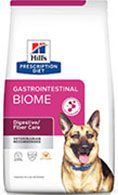Dogs are special pets. Each one has a unique personality, even if they share similar physical characteristics. To keep them in top shape, human companions should understand common ailments that may affect their health.
Skin Conditions
Common dog skin ailments include the following:
Typical symptoms include excessive grooming, scratching, licking or biting themselves.
You may prevent many unhealthy skin conditions with regular bathing and grooming, especially after exposure to the elements and environments like parks and nature trails. Look for small wounds, ticks, bald spots, lumps or signs of a rash or inflammation. If you are unsure about something, check with your veterinarian.
Obesity and Diabetes
Obesity in dogs is a common issue in many countries. Obesity puts more weight on joints, can lead to back pain and may cause a variety of health problems as your dog matures, even leading to diabetes in some pets.
Diabetes may give your dog seizures, cataracts or damage their internal organs. Early detection is important for treatment, so have your dog tested at your vet or use an in-home dog diabetes test kit if you suspect this condition. If the test indicates positive for diabetes, schedule a visit to the vet right away to discuss treatment.
Prevent pet obesity by not handing out too many treats. Monitor your dog’s weight and make small adjustments at mealtime or with more exercise if they gain too much junk in the trunk.
Parasites
Parasites include fleas, ticks and worms of all kinds. They can be irritating and life-threatening.
The best way to handle parasites is to avoid them. Be careful when you take your dog to an area where other dogs or wild animals frequent. Avoid garbage and waste, especially the kind of waste that animals leave behind. If your dog is exposed to feces, make sure to give them a good grooming session and a bath as soon as possible. Thorough grooming after every outdoor romp goes a long way in keeping dogs parasite-free.
Once acquired, parasites may be evicted using a variety of medicines and methods. Some over-the-counter remedies may be suitable for your four-footed pal. Check with your veterinarian for advice.
Dental Issues
Some breeds are more prone to dental problems than others, but generally, all dogs need some kind of dental care for good health.
Brush your dog’s teeth regularly. Look for signs of tooth decay, tumors, abscesses and anything else that looks unhealthy. Be vigilant for broken or damaged teeth, inflammation of the gums and plaque buildup. Bring these conditions to the attention of your veterinarian right away.
In addition to regular brushing, you might want to give your dog chew toys designed for dental health and consider regular professional dental cleaning.
Arthritis
Dogs of all ages may develop arthritis, but it is more common in older dogs. Arthritic joints may be warm and tender to the touch.
Limited mobility may be a symptom that your dog is suffering. Other signs of arthritis include irritability when touched, a change in gait, reluctance to run or jump or incidents of sudden aggression.
Good nutrition and exercise may be the best ways to stave off the onset of arthritis. If symptoms develop, see your veterinarian for treatment options.
Gastrointestinal Concerns
Any animal that runs around licking and tasting everything is bound to encounter an upset tummy from time to time. A little vomiting and loose stool is not rare and may just be a sign of something passing. But it could mean something else, so always pay attention to your dog’s behavior to make sure they are all right.
Always check your dog’s vomit. If you see blood, worms or non-food objects, like metal or glass, contact your veterinarian immediately. It’s the same with unusual stools—always check it out for the sake of your dog’s health. Call a veterinarian if something doesn’t look right.

Joanna Reichert from Pixabay
Prevention Is Better Than Curing
There are many threats that could affect your dog’s health. This article lists just a few of them. Your veterinarian should be able to help you with breed-specific information and guide you to reputable sources for further study. By being proactive and understanding your dog, you can help your loyal friend stay healthy and happy for many years to come.











